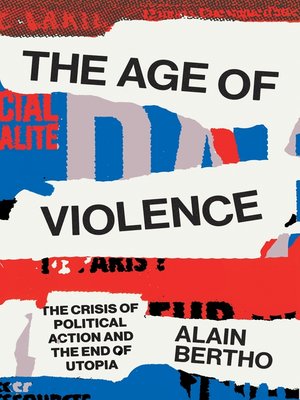
Sign up to save your library
With an OverDrive account, you can save your favorite libraries for at-a-glance information about availability. Find out more about OverDrive accounts.
Find this title in Libby, the library reading app by OverDrive.



Search for a digital library with this title
Title found at these libraries:
| Library Name | Distance |
|---|---|
| Loading... |
"Only martyrs know neither pity nor fear. Believe me, the day when the martyrs are victorious will be the day of universal conflagration". Jacques Lacan made this gloomy prophesy back in 1959: but doesn't it also apply to our own time? Faced with a rise in attacks around the world, can we really just blame the 'radicalization of' Islam'? What hope is there for the alienated youth, as the wars that have ravaged the Middle East spill out across the globe?
For Alain Bertho, the mounting chaos we see today is above all driven by the weakening of states' legitimacy under the pressure of globalization. Add to this the hypocrisy of the elites who beat the drum of 'security measures', even as they sow the seeds of violence around the world. This disorder is the swamp of despair which can only produce fresh atrocities.
Today's youth are the lost children of neoliberal globalization, the inheritors of the political and human chaos it produces. When they find it easier to imagine the end of the world than the end of capitalism, their revolt tends to take the paths of martyrdom and despair. The closing of the revolutionary hypothesis allows only fury. The answer, Bertho argues, is a new radicalism, able to inspire a collective hope in the future.
For Alain Bertho, the mounting chaos we see today is above all driven by the weakening of states' legitimacy under the pressure of globalization. Add to this the hypocrisy of the elites who beat the drum of 'security measures', even as they sow the seeds of violence around the world. This disorder is the swamp of despair which can only produce fresh atrocities.
Today's youth are the lost children of neoliberal globalization, the inheritors of the political and human chaos it produces. When they find it easier to imagine the end of the world than the end of capitalism, their revolt tends to take the paths of martyrdom and despair. The closing of the revolutionary hypothesis allows only fury. The answer, Bertho argues, is a new radicalism, able to inspire a collective hope in the future.







